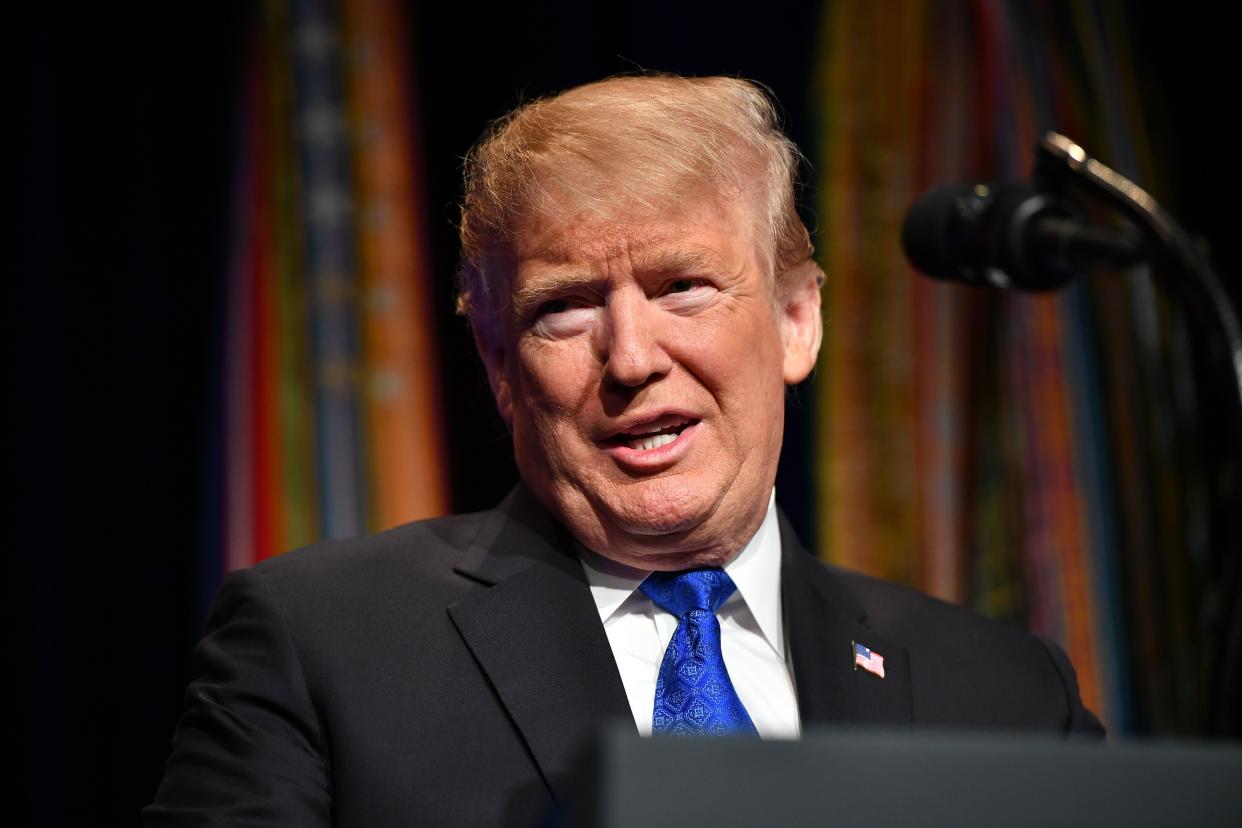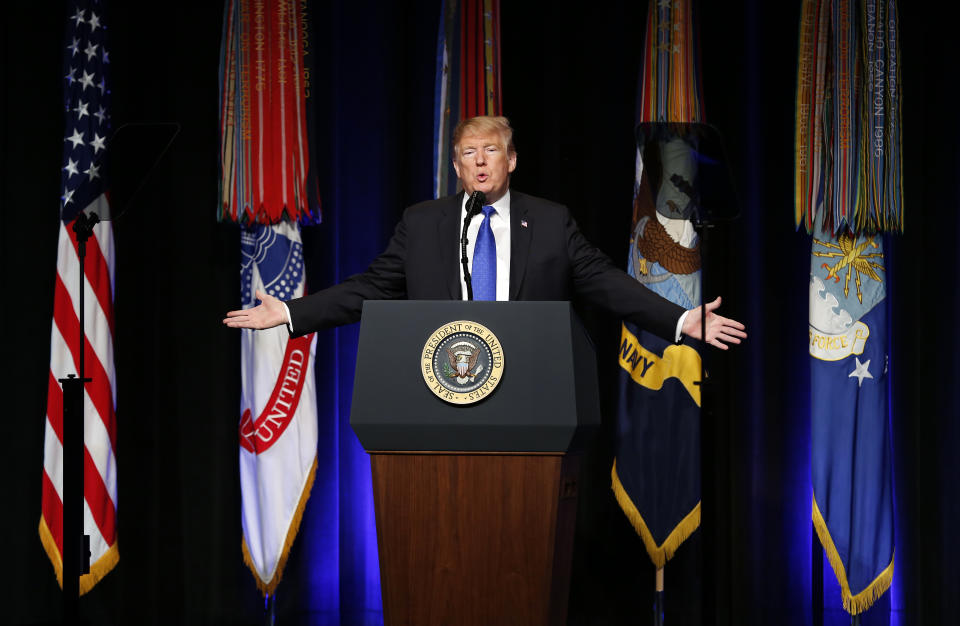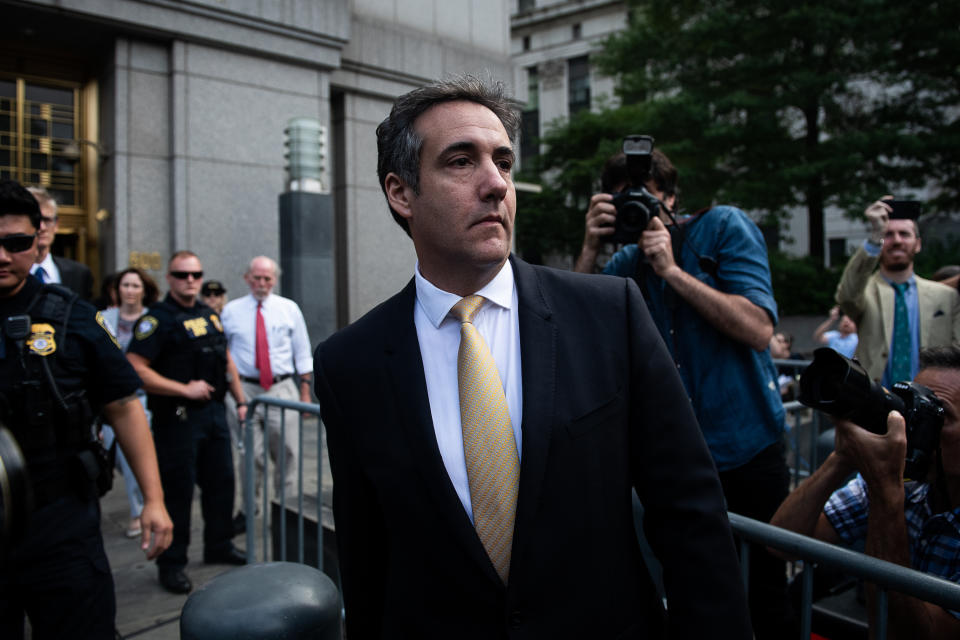Donald Trump's week of living dangerously


When the story of Donald Trump’s presidency is written, the week that ended on Jan. 18, 2019, packed full of headlines that would give any normal politician pause, may go down in history as a turning point. The news for Trump started out bad and seemed to get progressively worse as the week wore on.
It began with a slew of bad economic news. Despite Trump’s pledge to bring down the trade imbalance with China by imposing tariffs on imports, that deficit rose by 17 percent to a record $323.3 billion in 2018, figures from the Chinese government showed. An analysis by the New York Times showed that the American steel industry, whose recovery Trump has been touting, has received little benefit from his tariffs. The coal industry, which Trump routinely says he has saved, also is continuing its decline. An analysis by Reuters and the U.S. Energy Information Association found that more coal plants have closed in Trump’s first two years in office than in all of Barack Obama’s first term as president.
That was the backdrop as the country entered its fifth week of a partial government shutdown, which Trump precipitated over Congress’s refusal to authorize a $5.7 billion down payment for a wall on the U.S. border with Mexico. The president’s Republican supporters and surrogates applauded him for standing firm. So firm was Trump’s conviction that a wall or fence “or whatever you want to call it” was necessary that he said he was prepared to see parts of the government shut for months, if not years.
But then a new wave of polling arrived at the White House’s doorstep. Contrary to Trump’s (unlikely) claim that most government employees were prepared to forego their paychecks in support of a border wall, a survey of federal workers found that 71 percent opposed the shutdown, while just 21 percent approved of it.
A Quinnipiac University poll taken right at the time Trump visited the Texas border found that 59 percent of Americans considered a wall a bad use of taxpayer money, while just 40 percent agreed with the president.
While there was no shortage of polls concluding that more Americans blamed Trump than Congressional Democrats for the shutdown, the data that might have concerned him more showed that he was losing support from his vaunted political base. An NPR/PBS NewsHour/Marist poll, for instance, showed Trump’s support among suburban white men had dropped 18 points, his approval rating among white evangelicals was down 13 points, and there was an overall dip among all Republicans of 10 points.

Trump has long discounted negative polls as “rigged.” After all, he has reasoned, polls showed that he would lose the 2016 presidential election to Hillary Clinton by millions of votes, so what good are they (since he believes, even if no one else does, that he actually won the popular vote)? The president does have a point about the trustworthiness of polls, as we learned in a Thursday Wall Street Journal report that detailed how Trump’s former lawyer Michael Cohen paid an IT firm thousands of dollars to rig presidential polls at CNBC and the Drudge Report to favor you-know-who.
Nancy Pelosi apparently also keeps an eye on polls. Armed with the knowledge that more Americans were taking Trump at his word that he “would take the blame,” the House speaker sent the president a letter suggesting that he postpone his State of the Union address until after the government is reopened or simply deliver it in writing.
Sticking to his own golden rule of hitting back at anyone who opposes him, Trump responded with his own letter to Pelosi, canceling plans for her to fly on a military plane with a Congressional delegation to visit U.S. troops in Afghanistan, a country the president has yet to visit. “I am sure you would agree that postponing this public relations event is totally appropriate,” Trump wrote in his letter, in light of the ongoing shutdown, which he was no longer advertising as his idea.
The epistolary drama itself served to obscure debate about a tragedy that had befallen the U.S. military on Wednesday, when an ISIS bomb attack killed two U.S. soldiers and two American civilians in Syria. News of the attack came as Vice President Mike Pence was delivering a speech at the State Department in which he declared “ISIS has been defeated” while defending Trump’s decision to pull U.S. forces from that theater.
With the shutdown dominating headlines, it was also easy to forget that special counsel Robert Mueller’s investigation of the Trump campaign’s possible collusion with Russia in the 2016 presidential election continued apace, but Trump’s current lawyer, Rudy Giuliani, made sure to remind everyone.
Giuliani’s latest attempt to shift the Russia goalposts came Wednesday on CNN.
“I never said there was no collusion between the campaign, or people in the campaign,” he stated during an interview with Chris Cuomo. “I said the president of the United States. There is not a single bit of evidence the president of the United States committed the only crime you can commit here, conspiring with the Russians to hack the DNC.”
Setting aside the fact that Giuliani had indeed said in a Fox News interview in 2018 that there was no collusion between anyone in the Trump campaign and Russia, Giuliani’s implication on CNN amounted to an admission that the public had now learned otherwise. The previous week, a court filing revealed that Paul Manafort, Trump’s former campaign manager, had shared campaign polling data with Konstantin Kilimnik, a Russian citizen with ties to Russian intelligence.
As the week wore on, economists began sounding the alarm that Trump’s shutdown game of chicken with Democrats was already taking its toll on the U.S. economy. Citing an anonymous source inside the Trump administration, CNBC reported that the government was doubling its estimate of the economic damage from the shutdown.
White House Council of Economic Advisers chairman Kevin Hassett confirmed that the administration had been too optimistic that the impacts of a shutdown would be minimal. “We’ve been watching the actual effects and noticing that the impact that we see on government contractors is bigger than the sort of staff rule of thumb anticipated,” Hassett told Fox Business Network.
But the fitting coda to a tumultuous week came courtesy of Cohen, who, coincidentally, is scheduled to testify before the House Oversight Committee on Feb. 7. BuzzFeed News reported that Trump had directed Cohen to lie to Congress about his negotiations with Russian officials to build a skyscraper in Moscow. The president had insisted many times during and after the campaign that he had no business dealings with Russia, and, according to BuzzFeed’s reporting, Cohen’s testimony was designed to hide the truth.
The disclosure, which Democrats were treating as a smoking gun for the crime of subornation of perjury, comes as mistrust between the president and the party that controls the House of Representatives was as high as it can go, and makes one wonder how it will factor into an endgame for ending the shutdown.

Rather than respond himself to the allegations that he directed his lawyer to lie to Congress, Trump let Fox News do the heavy lifting.
Kevin Corke, @FoxNews “Don’t forget, Michael Cohen has already been convicted of perjury and fraud, and as recently as this week, the Wall Street Journal has suggested that he may have stolen tens of thousands of dollars….” Lying to reduce his jail time! Watch father-in-law!
— Donald J. Trump (@realDonaldTrump) January 18, 2019
The defense that one can’t trust the word of someone proven to have lied was perhaps best delivered by someone other than a president who, by the Washington Post’s running tally, has “made 7,645 false or misleading claims” since being elected.
Giuliani later denied the claims in the BuzzFeed article about Trump.
“Any suggestion — from any source — that the president counseled Michael Cohen to lie is categorically false,” the president’s lawyer told reporters Friday.
Maybe that’s true and this story will blow over without incident, the wall will be built, the government will reopen and the U.S. economy will return to full speed. If so, this week will seem like nothing more than a bad dream. If not, look for it in the history books of the future.
_____
Read more from Yahoo News:
2020 prospect Sen. Klobuchar: It’s ‘difficult to imagine’ voting for Trump AG pick
Despite denials, documents reveal U.S. training UAE forces for combat in Yemen
How the government closure is affecting Americans nationwide
PHOTOS: Partial government shutdown continues as Congress and president fail to reach deal


